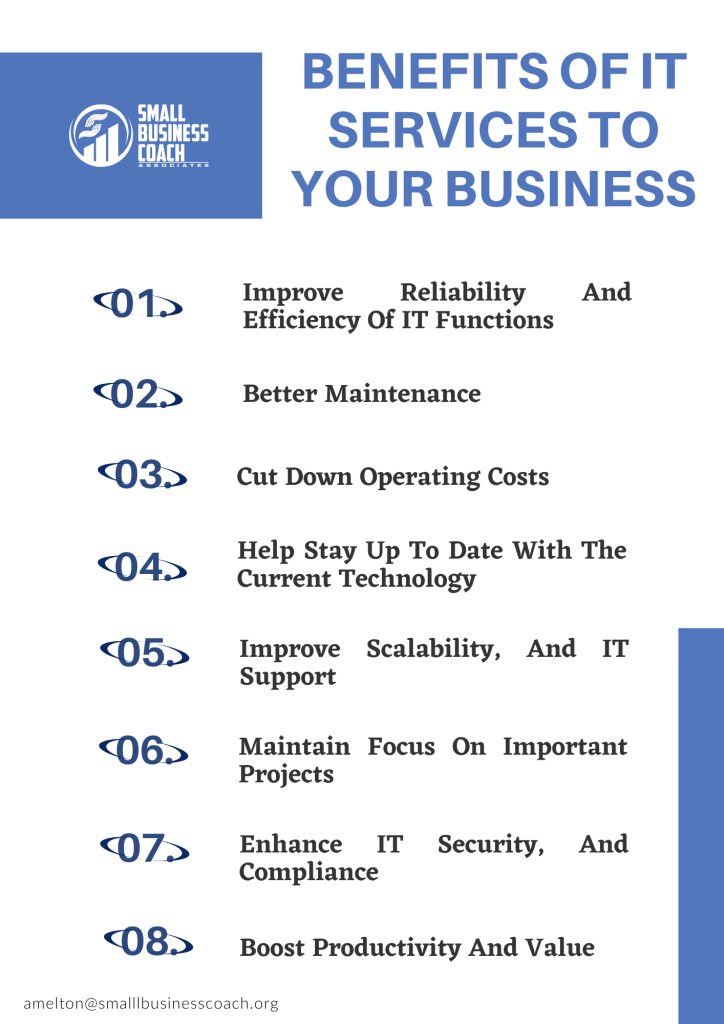Guide To ERP Software
Most business owners use all sorts of software and systems to help with their day-to-day activities. Most of these programs facilitate specific operations, such as invoicing, accounting, communications, and billing. However, you may also find a handful of software that can handle a variety of activities. Enterprise resource planning software, also known as ERP software, is a perfect example of this.
An Overview Of ERP Software
As stated earlier, ERP software is a type of program that facilitates day-to-day business activities. Unlike most business software that usually focuses on a specific activity, an ERP has numerous functions that touch many or all business operations. You can think of it as a program that fits numerous software into one system, thereby allowing business owners to cut down on costs.
Unfortunately, while ERP software is indeed a powerful business tool for corporate giants and small businesses alike, it can be quite difficult to navigate, much less utilize for business purposes.
For that reason, most users, specifically small business owners, consider ERP consulting services before taking on the challenge of ERP implementation for their organization. In the meantime, however, users can learn more about the software, and that’s what this article is all about. To start with, you must understand that ERP software consists of several components, also called modules.
Introduction To ERP Software Modules

Normally, when you purchase software from a provider, you can enjoy all the features that come with the package. For example, the key features of a digital asset management platform include:
- Batch download
- Search
- Version history and control
- Organization
- Filter and sorting
- Access control
However, that isn’t the case for ERP software. Unlike most systems and platforms, you can select which modules or components you want to include in the software. This is one of the main reasons that ERP software has become extremely prevalent among small business owners. By selecting only the features necessary for your business operations, you can cut down on the cost of your purchase.
On that note, here’s a list of the different modules that comprise most ERP systems:
- Finance and accounting
- Manufacturing
- Procurement
- Inventory management
- Warehouse management
- Workforce management
- Marketing
- Automation
While it might be tempting to select just about any module for your ERP software, you must take into consideration your business model, size, industry, and your employees’ technical expertise. If you can construct an ERP software that contains all the modules or components your small business needs, you should be able to maximize the potential of the software and enjoy its benefits to the fullest.
Potential Benefits Of ERP Software
Apart from the previous point concerning the customizability of ERP software, there are a lot of other benefits you can gain by implementing this type of software. Here’s a closer look at these benefits:
- Reduce Overall IT Costs
A business’s IT sector includes all the software utilized for business purposes. This may include platforms like invoicing software, billing programs, and staffing software. As you may imagine, maintaining this much software can be financially draining, especially for a small business. That’s why being able to fit all these into one system in the form of ERP software can be extremely helpful, as it reduces the overall costs to maintain your business’s IT department.
- Prevent Too Little Or Too Much Inventory
If you’re operating a retail business, you’ve probably experienced having too little or too much inventory a couple of times. Too little inventory means longer customer fulfillment times, while the opposite may increase your overhead costs. Either way, it doesn’t lead to any positive effects for your business. However, with the inventory management module present in your ERP, it should be possible to prevent having way too little or too many items in your inventory.
- Improve Customer Service
Customer relationship management, also known as CRM, is one of the essential components of a business. Not only does it improve your customer acquisition, but it may also positively affect your retention rate. In short, it improves your customer service quality. And, as you may have guessed, CRM is yet another module that you can find in typical ERM software. 
- Enhance Data Security
Much like most business platforms, ERP software generally offers enhanced data security that would allow you to protect valuable business data. Considering the ever-increasing number of cyber threats, this benefit could certainly go a long way in helping you manage your business.
- Automate Repetitive Tasks
Oftentimes, when a small business suddenly becomes popular among the masses, things tend to get hectic very quickly. At times like this, routine or repetitive tasks can get in the way of a productive operation. Hence, many business owners look for a way to automate these tasks, and ERP software is undoubtedly one of the best ways to approach this issue.
- Encourage Collaboration
As you may already know, ERP software may consist of numerous functions that would otherwise be separate from one another. For example, the accounting software is usually separate from the marketing platform, but ERM systems make it so the two are together. As a result, your employees can establish a connection with other sectors of your business, which in turn encourages collaboration and better communication.
As you can see, enterprise resource planning software is in no way inconsequential to an organization, much less to a small business. It brings a lot of benefits to the table, which explains why it’s incredibly popular with small business owners. But you must remember that ERP software isn’t free, by any means.
Cost Of ERP Software

ERP software varies in price according to the number of modules included in the package. But for your reference, the average price for an ERP system suitable to small businesses is around USD$5,000.
Take note that this figure is much higher for medium and big enterprises. Moreover, the price may come in the form of a subscription plan or licensing. For subscriptions, you usually need to enter a contract with the vendor to decide on the contract length.
Conclusion
Despite the benefits you can gain from having ERP software, you must also remember that it has a few disadvantages of its own. For example, you need to train your employees before you can get any use out of the software. Not to mention that it can be quite costly to purchase your license or subscription for the software. Simply put, investing in ERP software may not be for every business, but if you decide to do it anyway, this guide should be of great help.

























